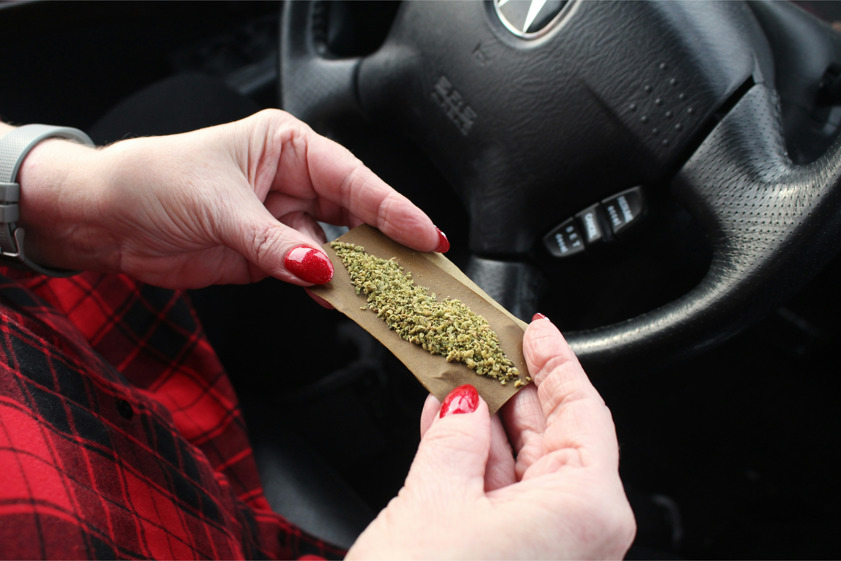
There was a time when drinking and driving was somewhat acceptable. It provided fodder for comedians, but beyond that, the issue didn’t resonate strongly in the public consciousness.
The advent of the breathalyser, diligent enforcement of the law, and a series of high-profile national road safety campaigns gradually transformed drink driving from a laughing matter to a societal taboo. Even today, there’s still some confusion about driving and alcohol. Few people know the exact legal blood-alcohol limit for drivers or what that limit translates to in terms of wine or beer. So, it's not surprising that driving after using other drugs is an even bigger mystery for most people.
The legal framework for drug driving in the UK has evolved over the years. Initially, drug driving laws were vague and difficult to enforce. However, the introduction of more precise legislation and advanced testing methods has made it easier to identify and prosecute offenders. Recent high-profile cases and campaigns have also brought increased attention to this issue, highlighting the need for public awareness and stringent enforcement.
While the profile of drink driving is high and gets a seasonal boost around Christmas with annual police campaigns, drug driving remains in relative obscurity. Many people aren’t even aware that drug driving is a specific problem or offence. Even fewer know what constitutes drug driving.
In a way, this is understandable. Common sense might tell us that alcohol isn’t the only substance that can impair our ability to drive, but how are people to know which of the myriad legal and illegal substances they might encounter pose a drug-driving hazard?
The relatively low awareness of drug driving doesn't reflect a low incidence. In fact, some police forces report that levels of drug driving may equal or surpass those of drink driving. Merseyside Police has noted that it regularly stops more people impaired by drugs than alcohol. The National Police Chiefs Council (NPCC) released data showing that during a campaign in England and Wales, 48.5% of drug tests were positive, compared to 9.5% of breath tests for alcohol.
Different drugs have different effects on the body and driving ability. Below is a short list of some common drugs that impair driving include:
- Cannabis: Slows reaction time, impairs judgement, and distorts perception.
- Cocaine: Increases risk-taking behaviour, impairs coordination, and can cause erratic driving.
- Prescription medications: Some painkillers, antidepressants, and sedatives can cause drowsiness, blurred vision, and reduced coordination.
- Amphetamines: Can cause overconfidence, aggressive driving, and impaired concentration.
Knowing the specific effects of these drugs can help in understanding why they pose such a significant risk on the roads.
One reason the drug driving picture is so unclear is the lack of a straightforward definition. Drug driving can mean driving while impaired by prescribed drugs or driving while impaired by illegal drugs. There is an official list of controlled substances, each with a permissible concentration limit in a driver’s blood, much like alcohol. Sections 5A(1)(b) and (2) of the Road Traffic Act (RTA) 1988 outline the offence of driving or being in charge of a motor vehicle with a proportion of a specified controlled drug above the specified limit.
However, that’s not the whole story. Driving while impaired by any drug, whether it’s on the controlled list or not, is an offence. If police suspect a driver’s competence is compromised by drug use, they may charge the driver under Section 4 RTA 1988 - Driving/Attempting to drive or being in charge of a motor vehicle whilst unfit. This charge can be made even if the drug in question is legally prescribed and below the blood concentration limit. What matters is the impairment to driving ability.
Police use a variety of methods to test for drug impairment. Roadside tests often involve a saliva swab to detect the presence of drugs. If a driver tests positive, they are taken to a police station for a blood test, which provides more detailed information about the type and concentration of drugs in their system. Advances in testing technology have made it easier to identify drug-impaired drivers accurately and quickly.
A conviction for drug driving carries severe penalties and wider consequences.
Legal penalties include:
- A minimum 12-month driving ban
- An 11-year licence endorsement
- A criminal record
- Up to 6 months in prison
- An unlimited fine
- If an accident occurs and people are killed or injured due to the effects of drugs, the penalties become more severe, potentially leading to a life sentence.
Wider consequences include:
- Increased insurance premiums
- The stigma and humiliation of a conviction
- Possible loss of employment
- Loss of independence and mobility, relying on lifts and public transport
- Future difficulty in securing employment; employers are wary of drug convictions
- Possible difficulty in obtaining visas or work permits for some countries
To avoid drug driving, consider the following tips:
- Plan ahead: Arrange for alternative transportation if you plan to use drugs.
- Understand your medication: Know the side effects of any prescribed medication and how they might affect your driving.
- Set up a designated driver: Ensure you have someone sober to drive if you are under the influence.
- Be informed: Stay updated on the laws and regulations regarding drug driving.
As with drink driving, there are several myths about drug driving that can mislead drivers into breaking the law. Some are easy to debunk, while others seem worryingly plausible. Here are some of the most common myths, along with the actual facts.
Myth: The police only charge you for drug driving if you've used illegal drugs.
Fact: This is completely false, yet it remains one of the most widely believed misconceptions. As explained earlier, the range of substances that can get you into trouble includes both legal and illegal drugs. The police will enforce the law for all of them.
Myth: Driving on drugs is safer than driving after a few beers.
Fact: Just as intoxicated people often cannot judge how much alcohol has impaired their driving ability, people under the influence of drugs are similarly unable to objectively assess their condition. Whether the substance is alcohol or cannabis, if you fail a roadside competence test or a blood test, you will face the consequences. If you have an accident, the consequences could be even more severe for everyone involved.
Myth: Cannabis doesn't affect your ability to drive.
Fact: Evidence and the law both contradict this belief. Regardless of whether one personally believes that cannabis impairs driving ability, the law has determined that it is an offence that carries serious penalties.
Myth: I'm safe if I'm not actually in the car when the police approach me, or if I sit in the back to sleep it off.
Fact: This is incorrect. If you have the keys or anything required to start and drive the car and you test positive for drink or drugs, you can be prosecuted for being in charge of the vehicle while impaired. The penalties for being "in charge" are slightly different from those for actually driving, but they still include disqualification, licence points, a significant fine, and possibly a prison sentence. If you have control over the car, you should stay away from it after using drugs or alcohol.
Myth: If I use drugs on a night out, I can go back and collect my car in the morning.
Fact: Not necessarily. The effects of drugs vary from person to person, depending on factors such as age, sex, body mass, and metabolic rate. It's entirely possible for your blood to still contain a higher than legal concentration of drugs for driving the next morning, or even longer.
We’re not here to tell you whether or not you should use alcohol or other recreational drugs or how to take your prescription meds. However, we do see it as our responsibility to share fact-based motoring advice and information. That's the purpose of this article.
Understanding the risks and legalities surrounding drug driving is crucial. Stay informed, stay safe, and remember drug driving is not just a misunderstood offence, it's a serious and potentially life-altering one.
For more information, why not check out our Drink Driving: How long should you wait before getting behind the wheel blog? We also produce a range of weekly blogs on various topics, which can be found in the blog section of our website.
Nationwide Vehicle Contracts are one of the UK's leading car leasing brokers and offers a range of leasing deals to suit every need. To find out more, check out our comprehensive car leasing guides or call one of our experts on 0345 811 9595.

